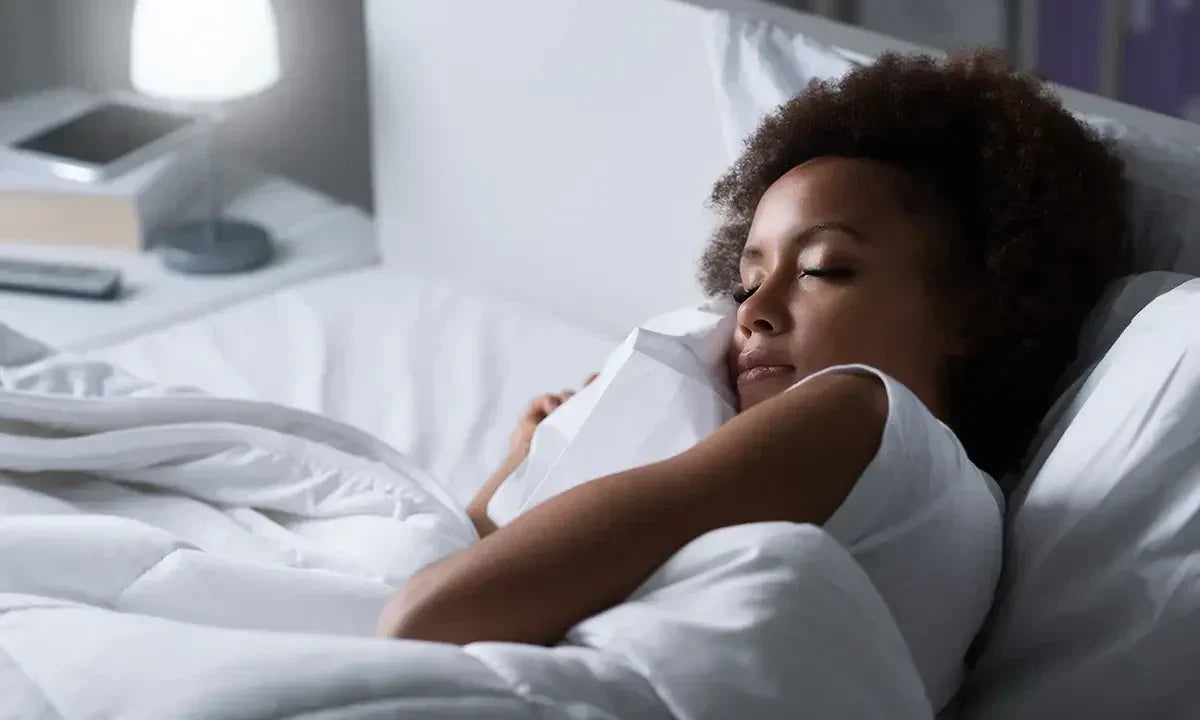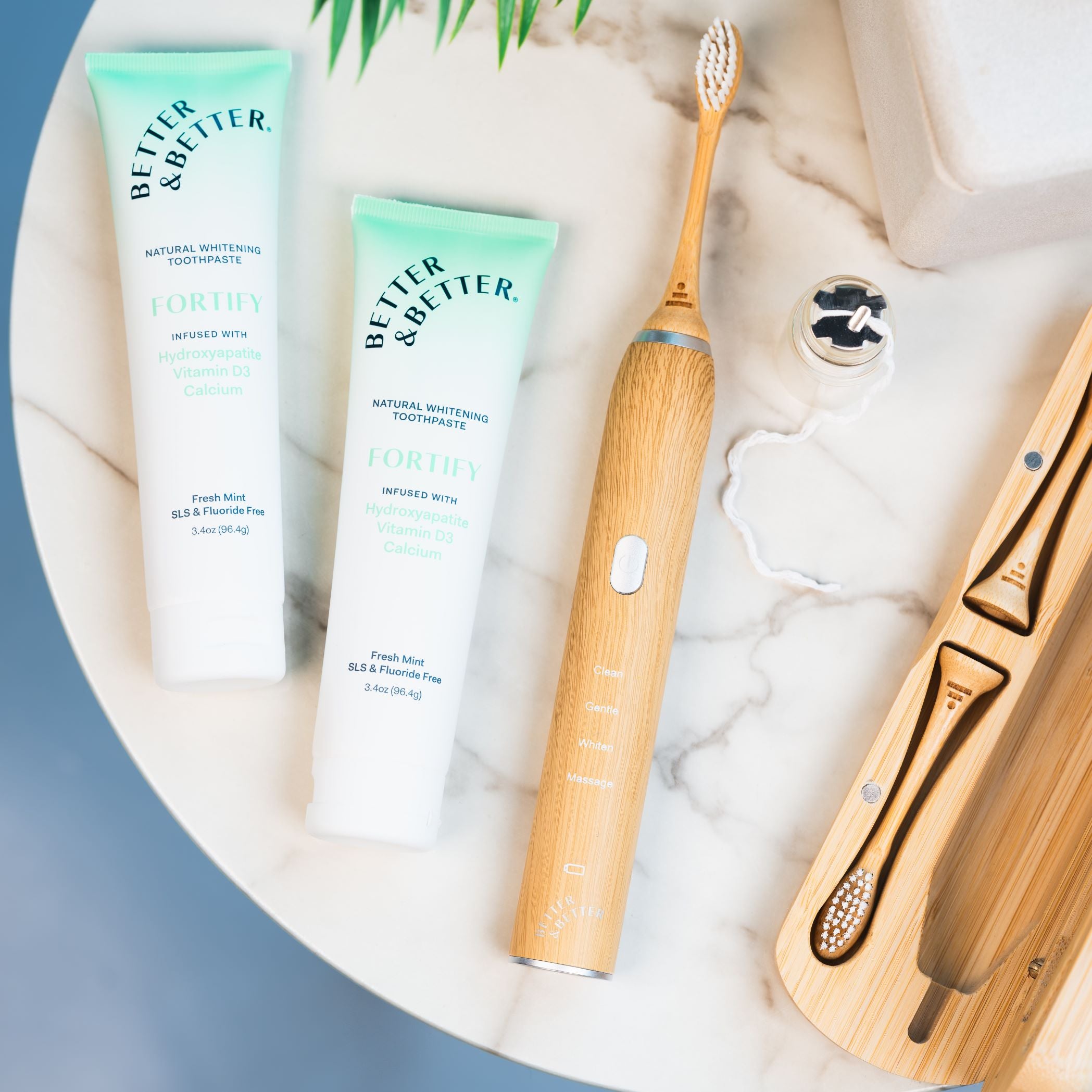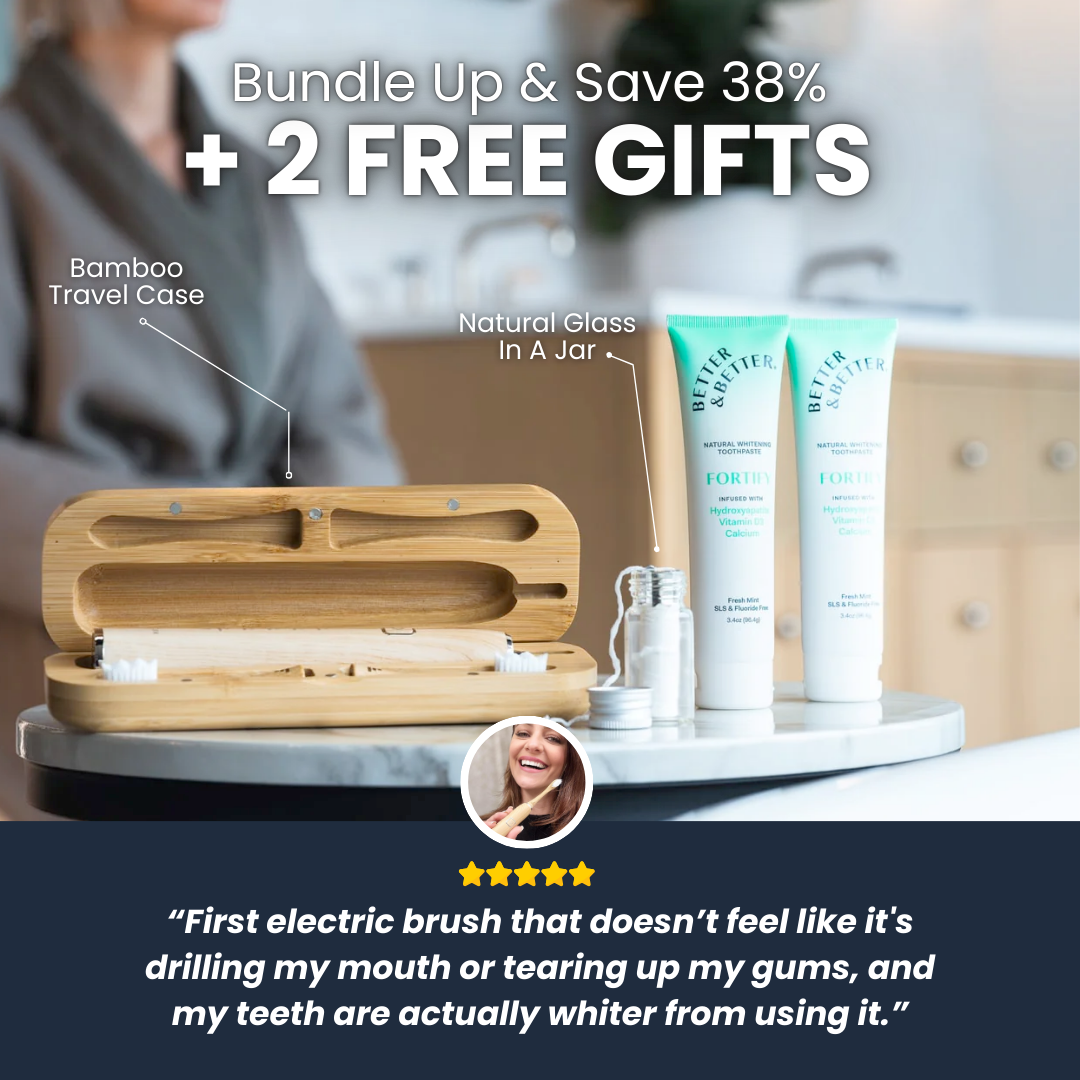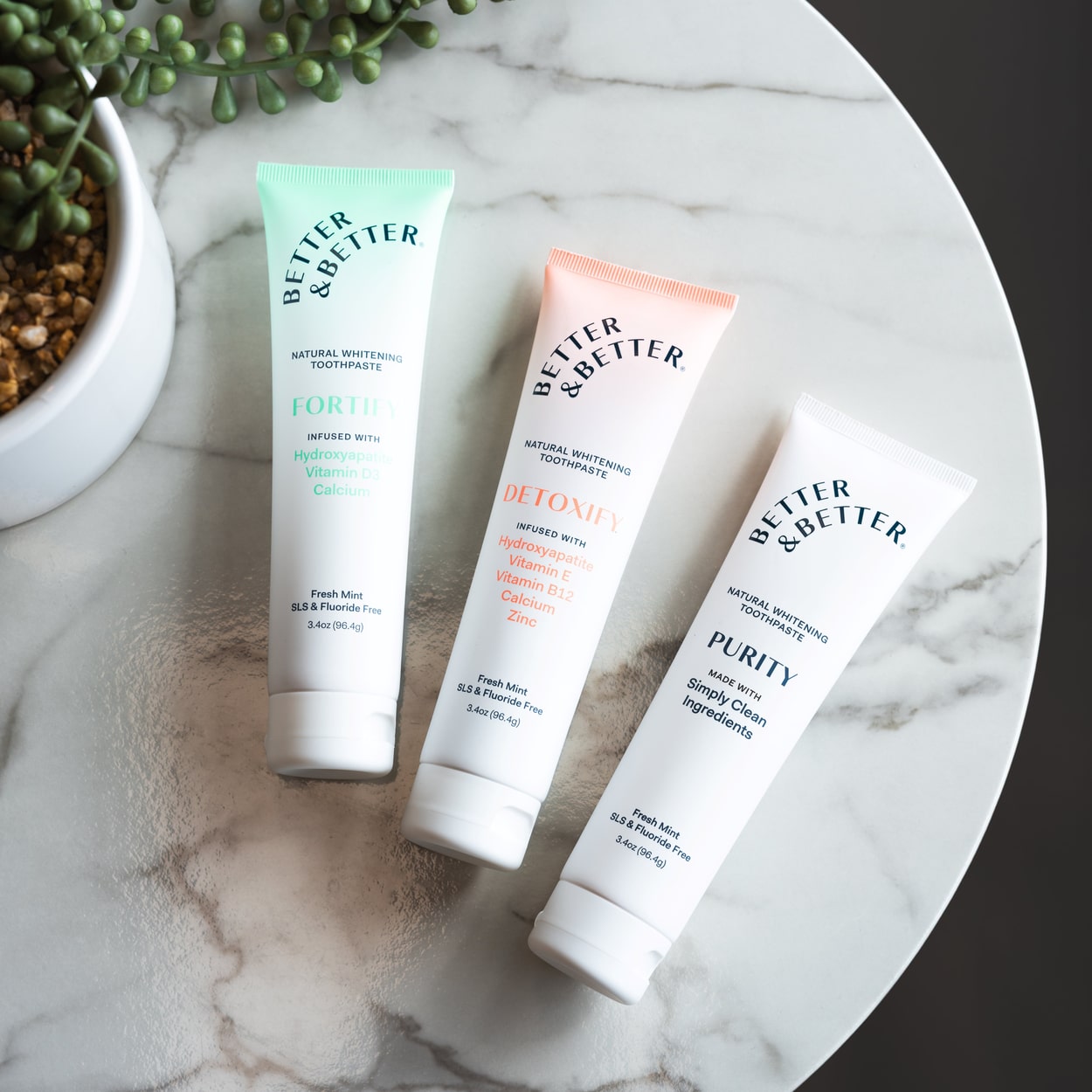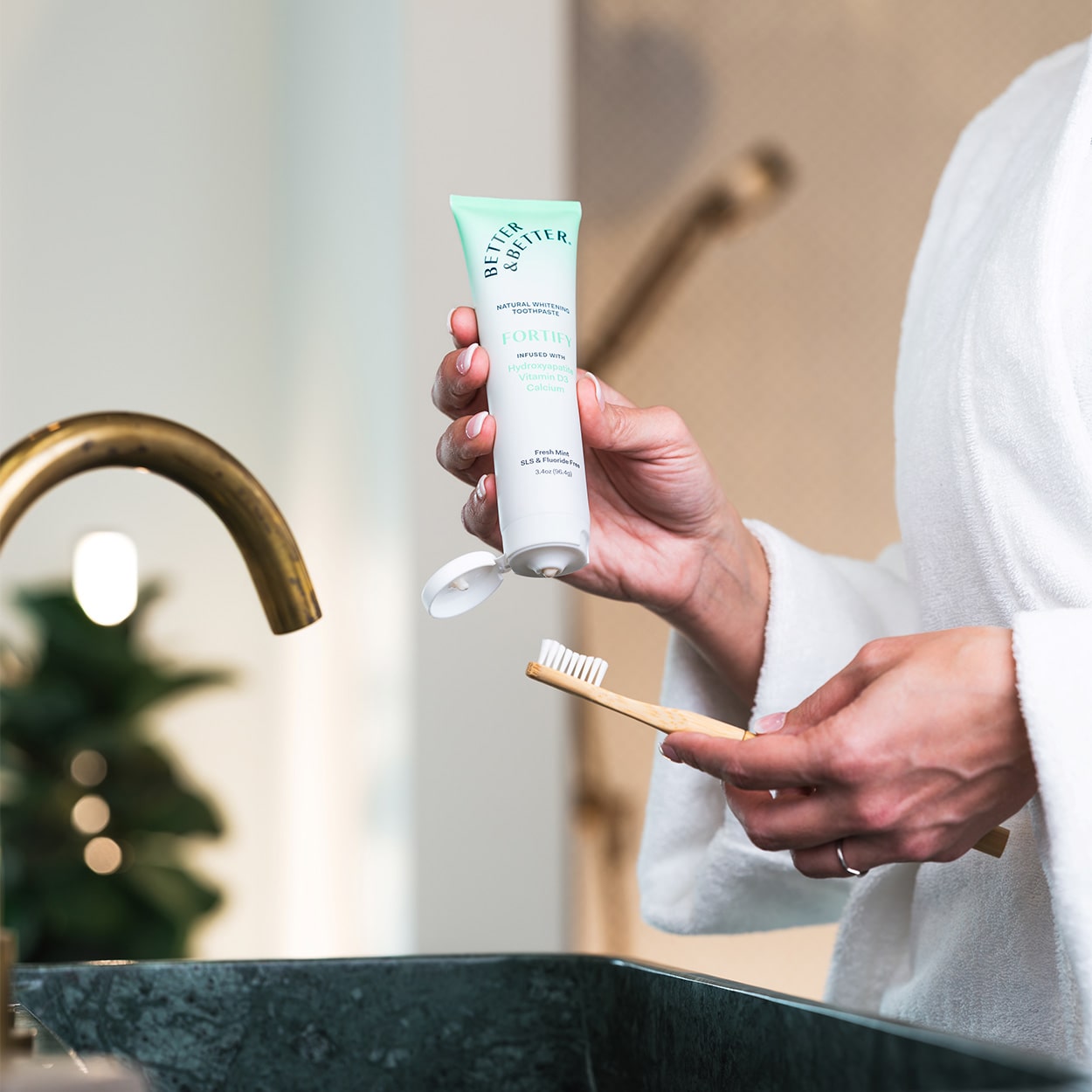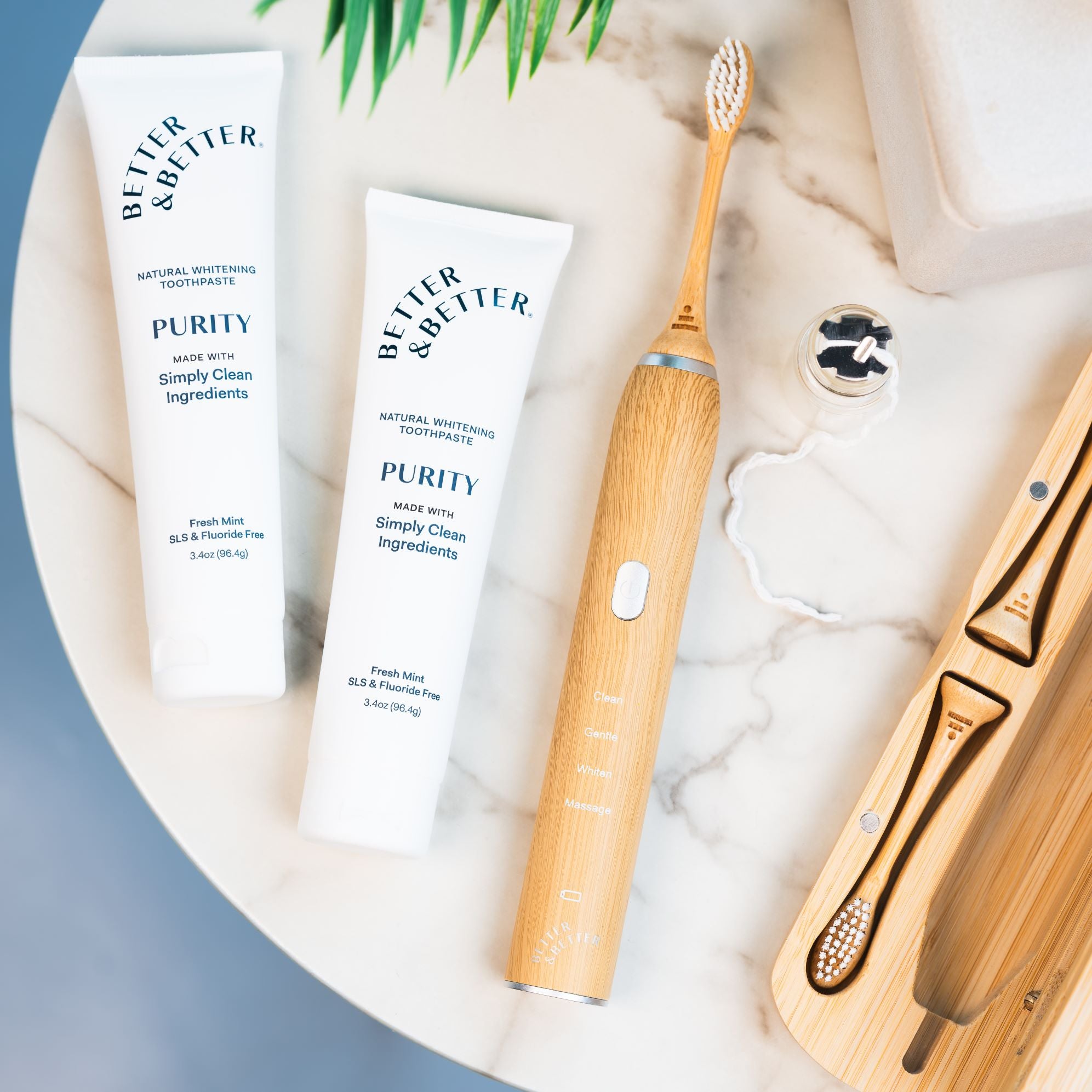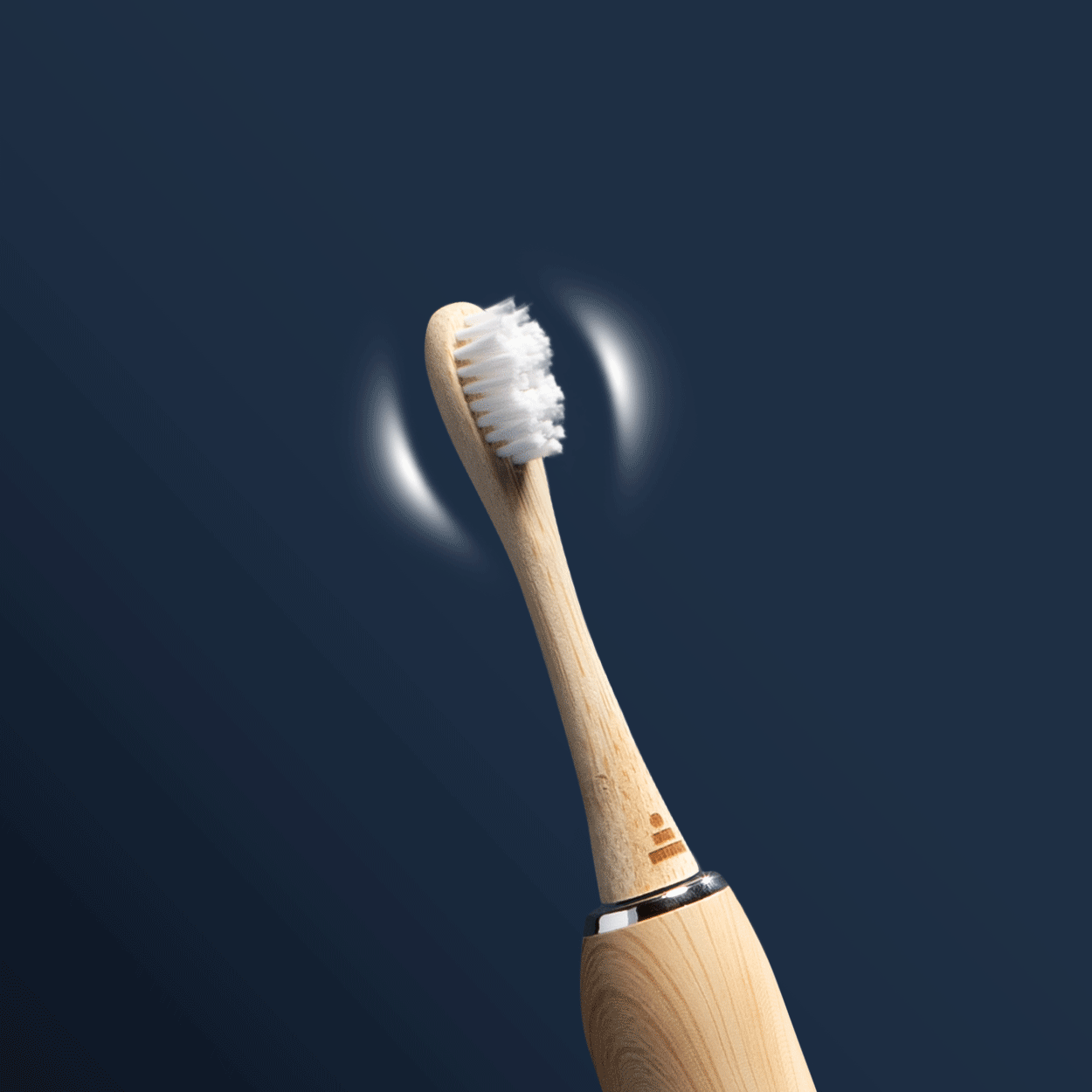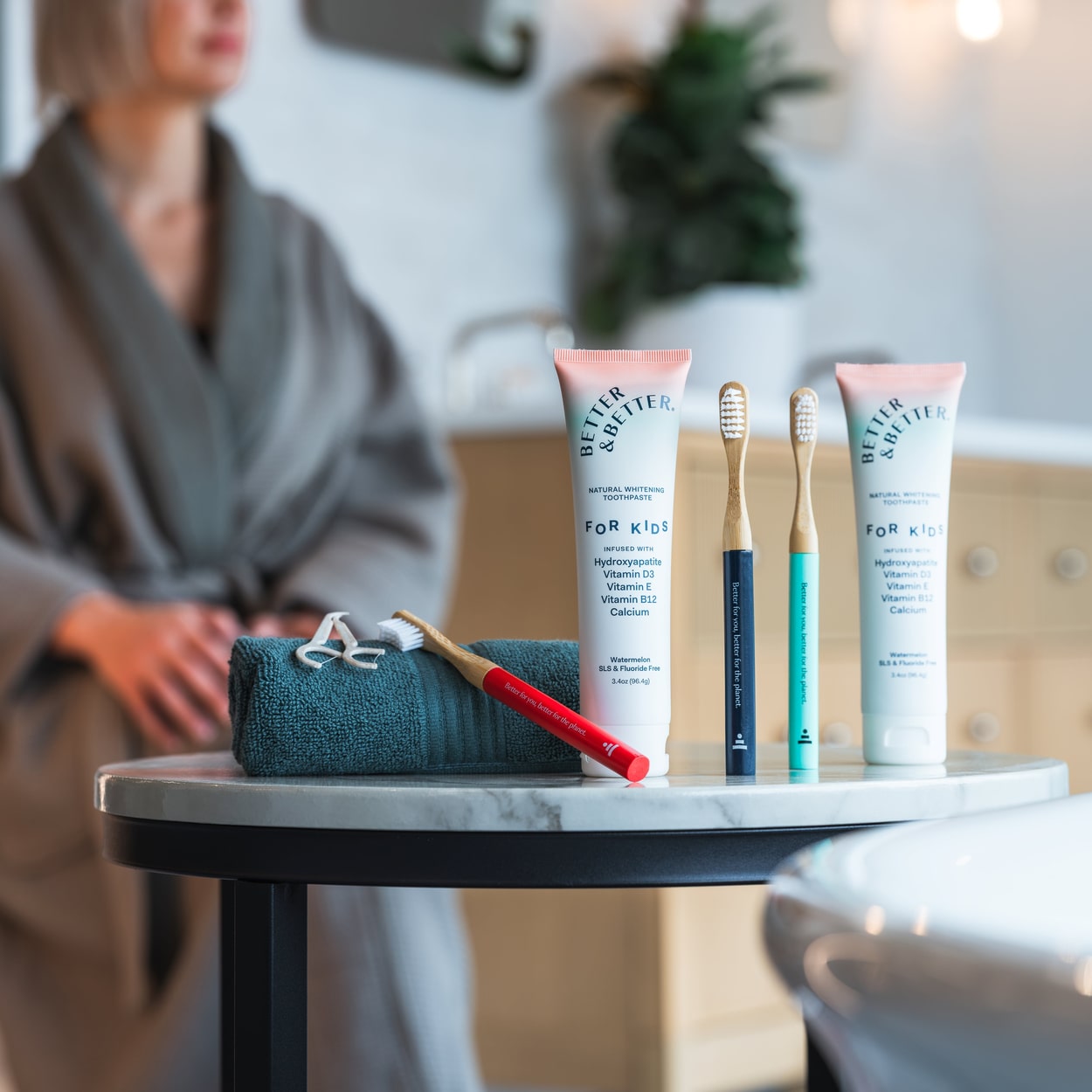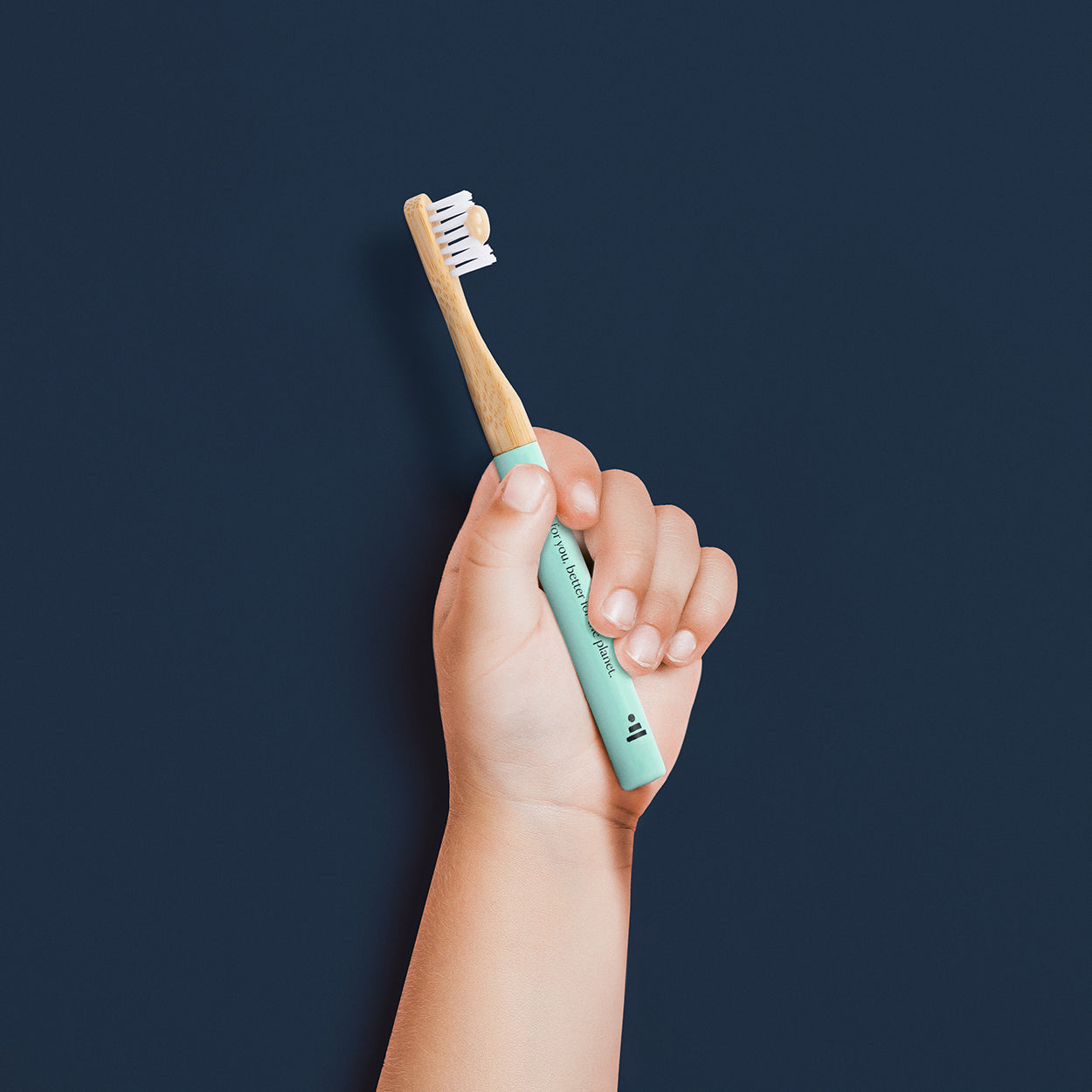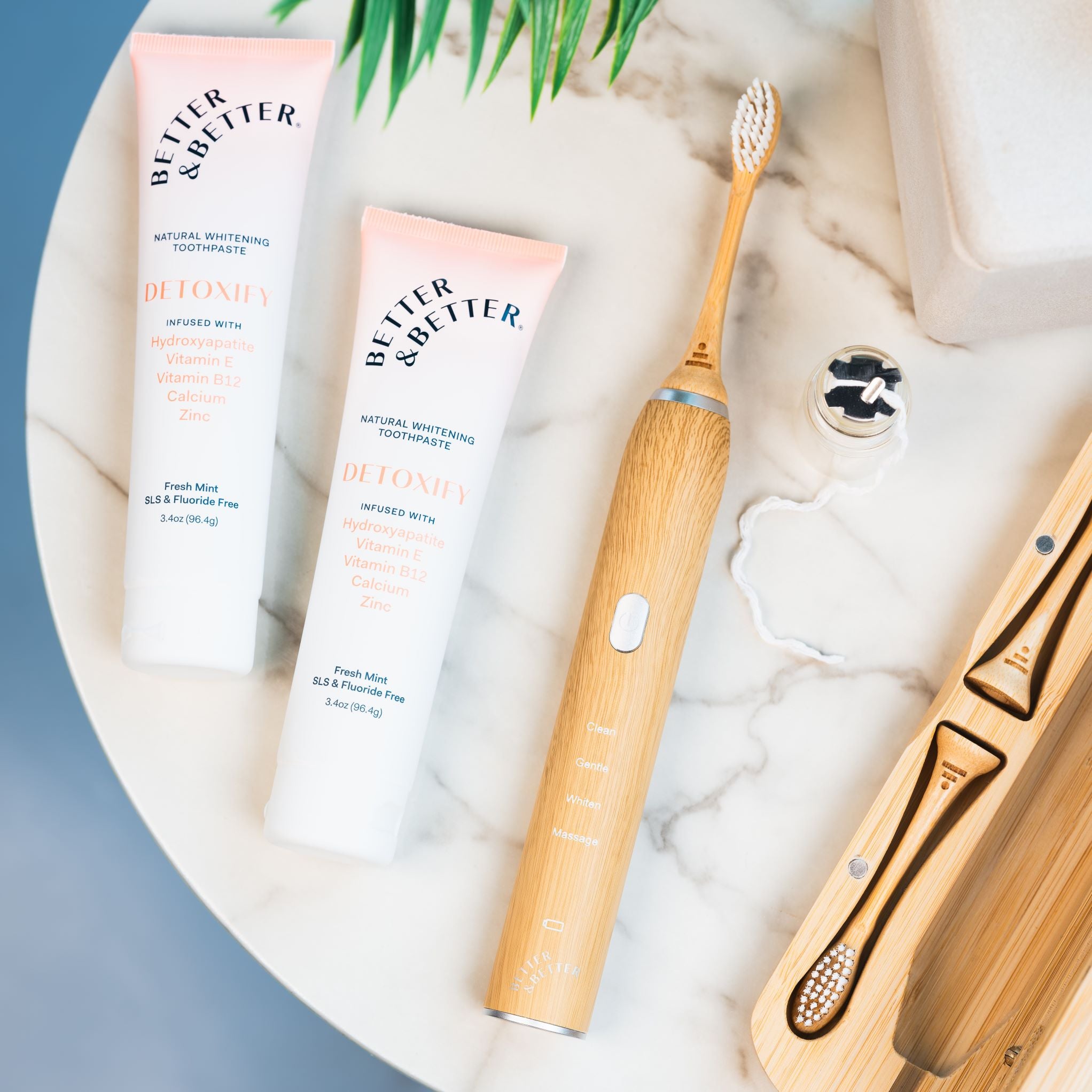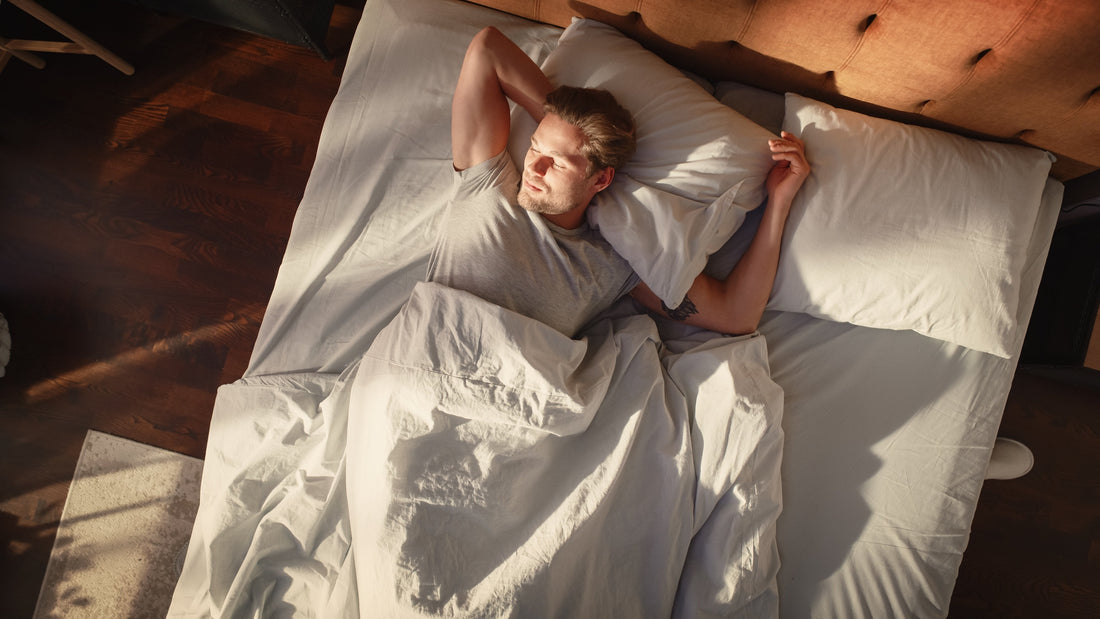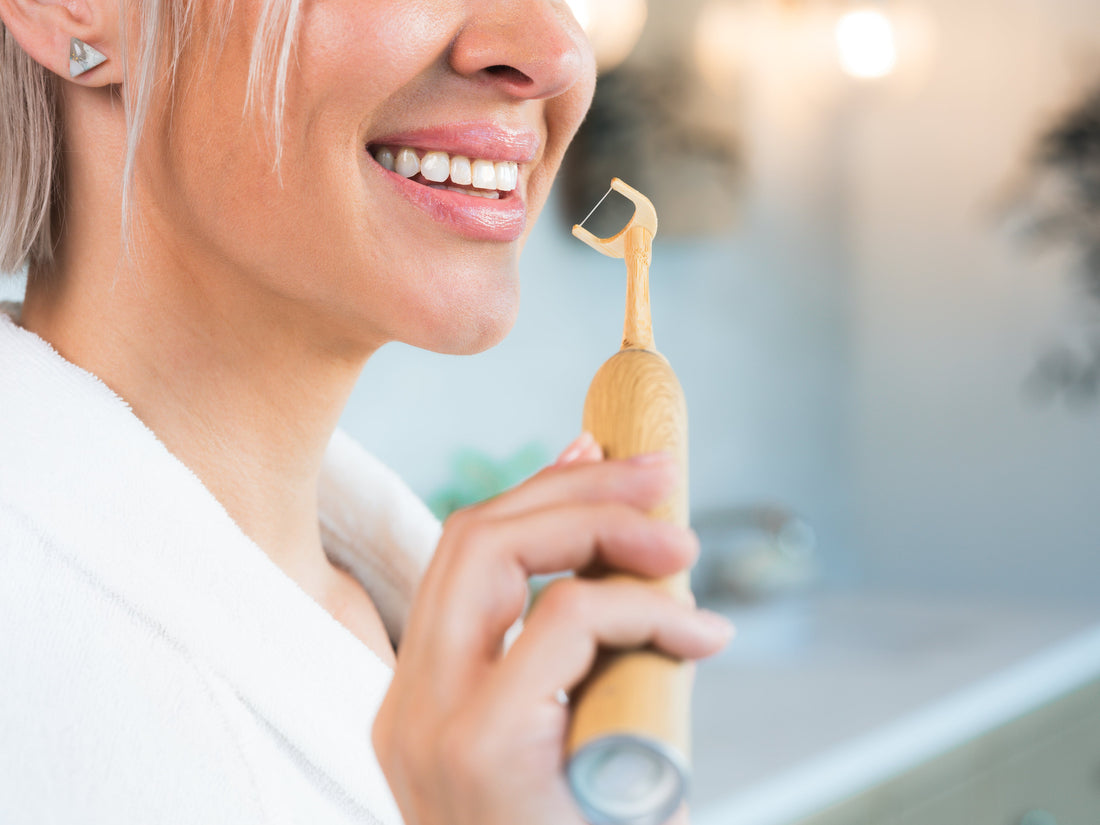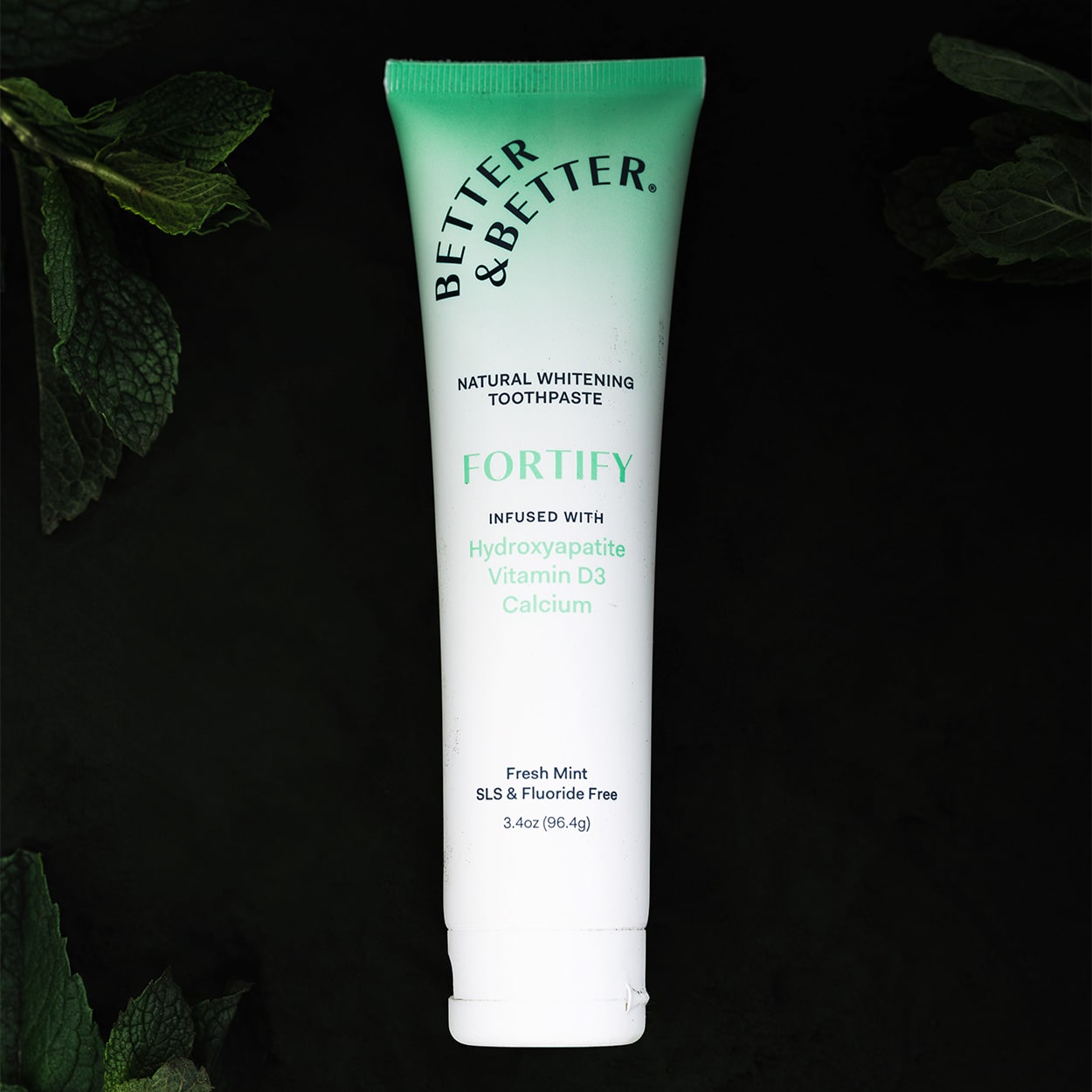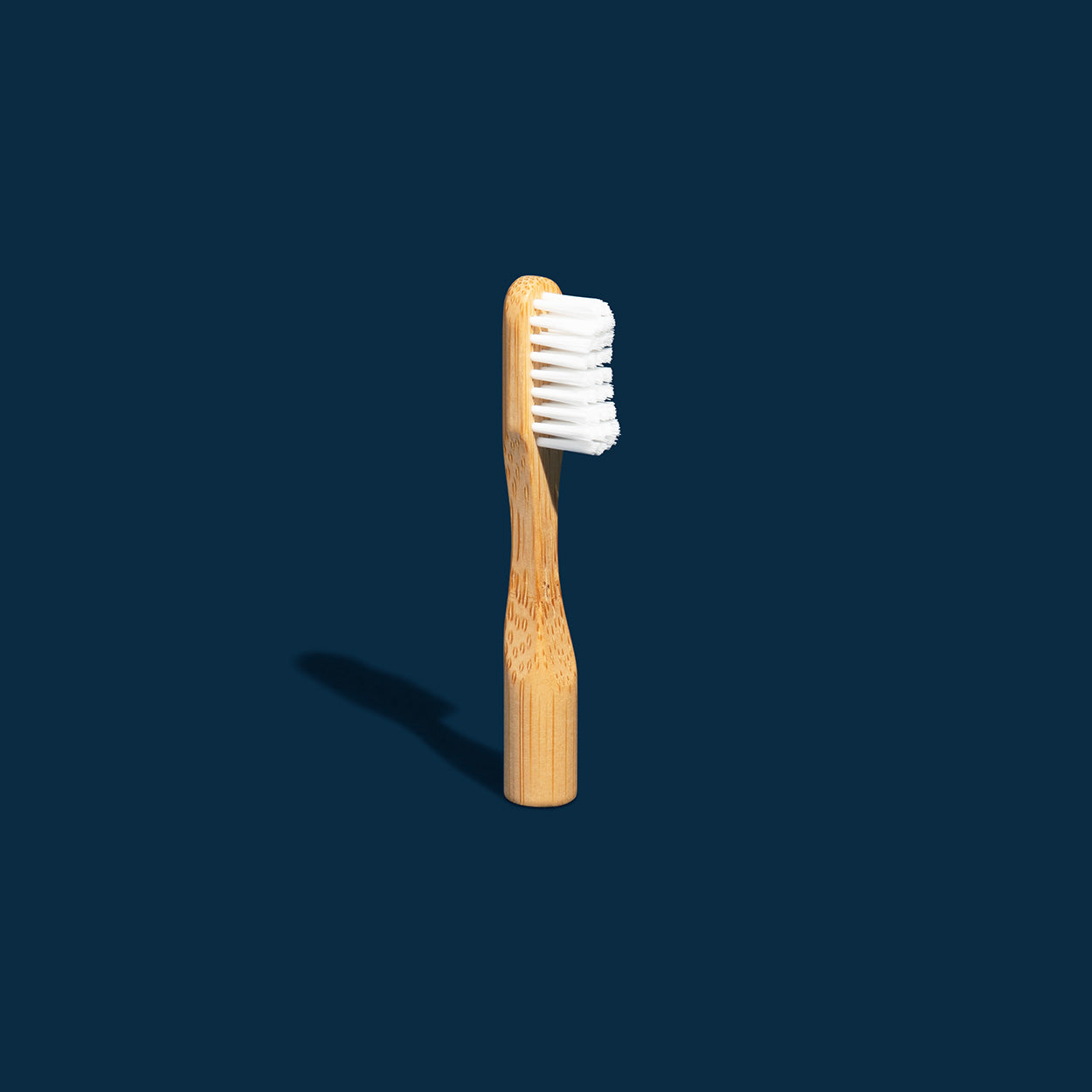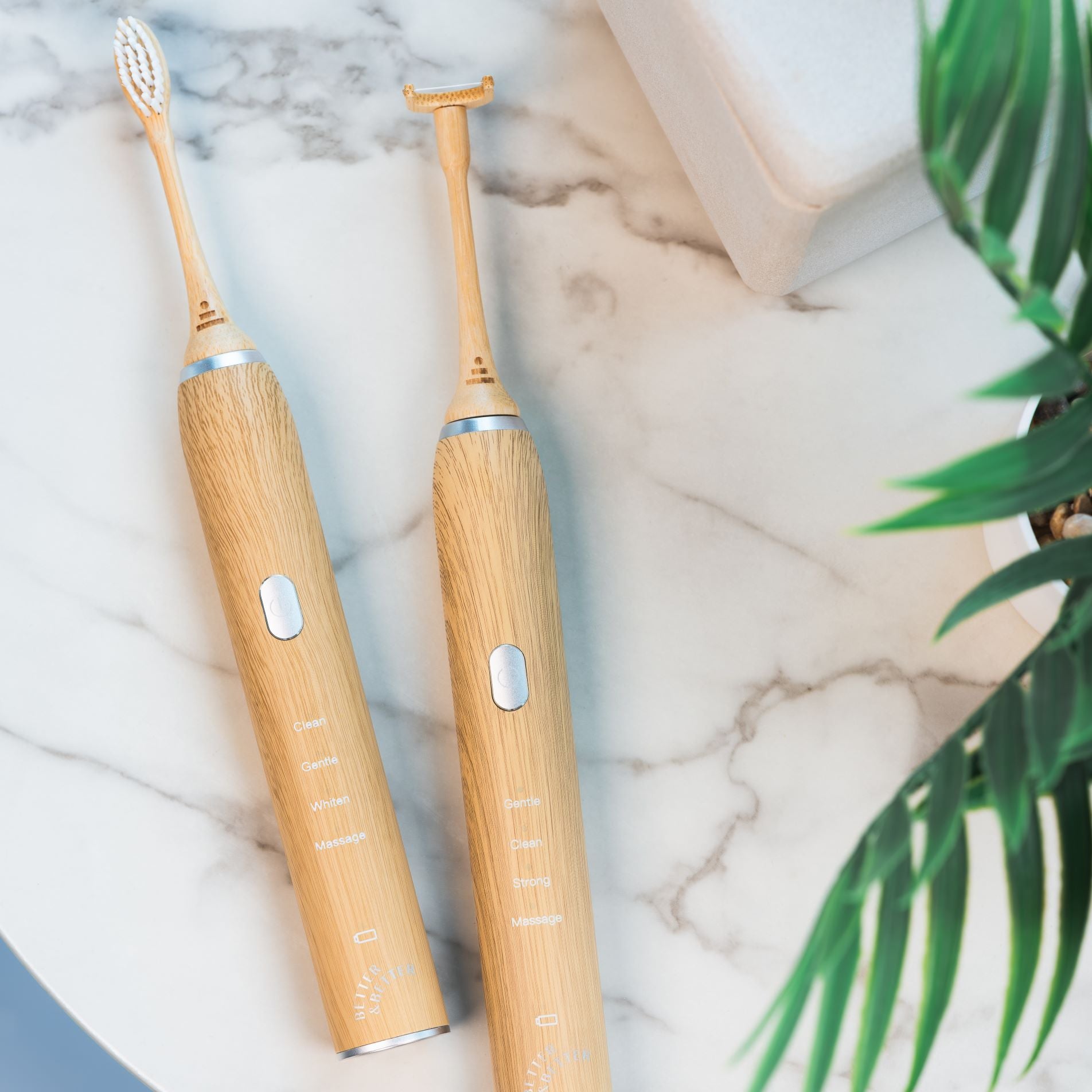You probably didn’t know this, but your oral health and sleep are closely intertwined! Poor oral health can lead to uncomfortable oral health conditions which can impact your airways while you snooze. In fact, this is one of the biggest culprits of sleep disruption.
While conditions such as dry mouth, bruxism, and sleep apnea can obstruct the airway and lead to discomfort, poor oral hygiene can also cause gum disease or tooth decay. Recurrent oral pain and toothaches make it difficult to fall asleep and stay asleep. Understanding the relationship between poor oral health and lack of proper sleep is important because when the immune system is compromised, it increases oral infections and inflammation.
Maintaining good oral hygiene, regular dental checkups, and addressing sleep-related disorders are essential for both oral and overall health. It’s also important to make sure that you’re using the right tools as well. That is why I love to use my Better & Better Bamboo Sonic Toothbrush as it ensures that you will have less gum inflammation (more on that later).
Let’s cover five ways your oral health can affect your sleep.
Dry Mouth
Having a dry mouth can pose a huge problem when it comes to your sleep. One way to combat this health issue is to brush your teeth at least twice a day. However, many common medications, such as antihistamines, antidepressants, and blood pressure drugs, can reduce saliva production, leading to dryness in the mouth. Dry mouth can also be a result of working conditions causing excessive sweating as the body struggles to produce enough saliva.
This impacts your sleep because your mouth is constantly looking for H2O, which can make you wake up in the middle of the night. If you struggle to stay hydrated, setting reminders on your phone to drink water and carrying a water bottle throughout the day is a wonderful solution. Saliva substitutes, such as rinses, lozenges, or Better & Better’s Balance Vitamin Mouth Spray can provide temporary relief by mimicking the natural moisture of saliva. Lifestyle changes like quitting smoking, using a humidifier at night to keep airways moist, and chewing sugar-free gum to stimulate saliva can also help with dry mouth.
Bruxism
Bruxism (AKA teeth grinding) is a condition where a person clenches or grinds teeth, often unconsciously, either while awake or asleep. It can be caused by stress, anxiety, misaligned teeth, or sleep disorders, and is usually marked by symptoms such as jaw pain, headaches, worn or damaged teeth, increased tooth sensitivity, and facial soreness.
Since bruxism usually occurs when an individual is sleeping, it can greatly disrupt rest by causing frequent jaw clenching and teeth grinding, leading to an uncomfortable state. This pressure on the jaw muscles during the night leads to more discomfort throughout the day, as the person is not only not well rested, but they wake up with jaw pain, stiffness, or headaches. Night guards, however, are a common and effective solution for managing bruxism. Custom-fitted by a dentist, these guards act as a protective barrier. Since bruxism can be caused by stress, stress management techniques can help address the triggers of bruxism.
Oral Pain and Discomfort
General toothaches as a result of poor hygiene can disrupt sleep as well, but poor hygiene can eventually lead to gum disease—an intense oral pain. The persistent discomfort often intensifies at night due to increased blood flow to the face when lying down.
This can lead to restlessness and frequent awakenings. Maintaining good oral hygiene by brushing and flossing regularly can prevent further issues and alleviate some discomfort. Avoiding caffeine and heavy meals close to bedtime can also enhance sleep quality. If oral pain persists, seeking professional dental or medical advice is important for addressing underlying issues and receiving treatment.
It’s also important to find the right floss that works best for you! There are all different types of floss, but I really like Better & Better’s Natural Floss. It’s natural, non-toxic, and removes sticky bacteria and plaque from your mouth—all while eliminating plastic from your flossing routine.
Sleep Apnea
Obstructive sleep apnea (OSA) is a common sleep disorder characterized by repeated interruptions in breathing during sleep due to the collapse of the upper airway. Symptoms of OSA include loud snoring, choking or gasping during sleep, daytime sleepiness, and difficulty concentrating.
Misalignment of the teeth and jaw can interfere with the proper alignment of the airway, leading to airway obstruction and sleep apnea. Crowded or crooked teeth can limit the space in the oral cavity and block the airway as well. Oral appliances are a non-invasive treatment option for managing sleep apnea. These devices work by repositioning the lower jaw and tongue forward to keep the airway open during sleep.
TMJ Disorders
Lastly, Temporomandibular joint (TMJ) disorders refer to a group of conditions affecting the temporomandibular joints, which connect the jawbone to the skull. TMJ symptoms include jaw pain, tenderness, and difficulty moving the jaw. Patients with TMJ disorders may also experience headaches, neck pain, and discomfort while chewing.
The inflamed or misaligned sensation of TMJ leads to chronic pain in the jaw, face, and neck, making it difficult to find a comfortable sleeping position. Since TMJ disorders can also cause teeth grinding or clenching, oral appliances, such as splints or night guards, are commonly used to reduce jaw clenching and teeth grinding and minimize pain. Physical therapy is another approach, involving exercises to strengthen and stretch the jaw muscles.
Better Oral Health Means Better Sleep
Better & Better’s oral care products are some of my absolute favorites because they’re designed to address the root cause of oral health conditions that hinder sleep, such as gum disease, tooth decay, and dry mouth. Their range of products, including specially formulated toothpaste and mouth spray, helps maintain optimal oral hygiene, reducing the risk of infections and inflammation that can disrupt sleep.
Dr. Jaclyn Tomsic, MD, DMD, FACS, is a board-certified Oral and maxillofacial surgeon (OMF) based out of Cleveland, OH. OMF involves extensive dental and medical education and training to achieve surgical expertise and an unparalleled understanding of esthetics.


